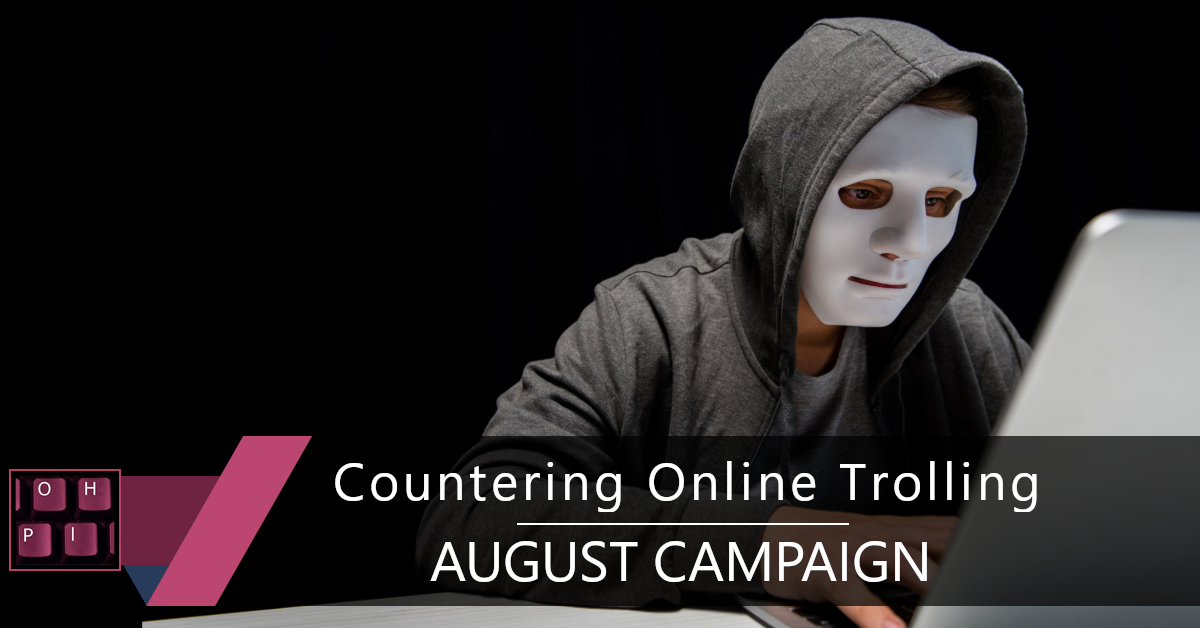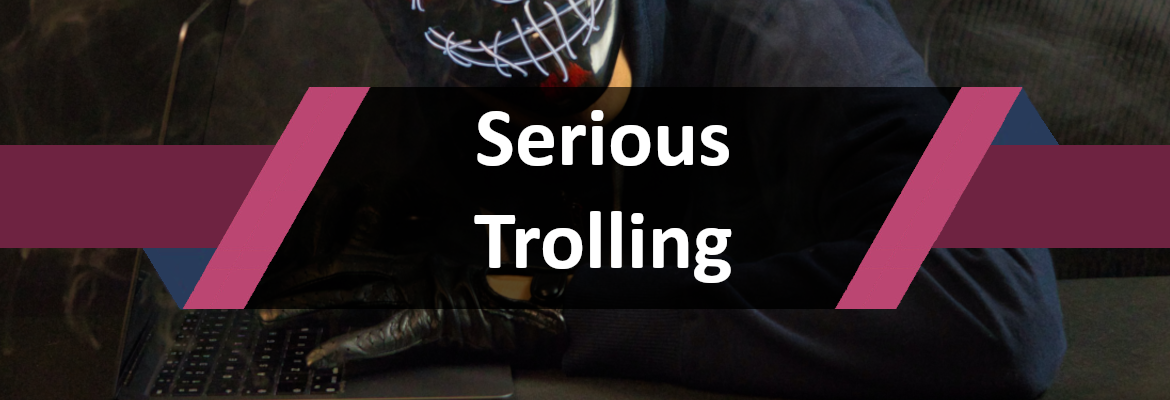With respect to the Internet, The Macquarie Dictionary (Sixth Edition, 2013) defines a troll as:
troll1
/troʊl/ (say trohl)
verb (t)
8. Internet to behave in the manner of a troll.
noun
13. the act of trolling.
4. Internet
a. someone who, protected by online anonymity, posts messages in a discussion forum, chat room, etc., which are designed to disrupt the normal flow of communication by being inflammatory or puzzling.
b. such a message.
[Middle English trollen roll, stroll, from Old French troller, from Middle High German trollen; def. 16 variant of trawl, from the notion that originally people in a chat room identified newbies by asking questions that only a newbie would take seriously]
–troller, noun
OHPI specifically focuses on trolling that is related to causing reputational damage, encouraging self-harm, threats and intimidation, and spreading hate about a person or community.

See also: Cyberbullying.
Campaigns
August 2020 – Combating Online Trolling

Our August 2020 campaign was a month long campaign that aimed to increase the focus on countering online Trolling
Support our work
Help us to tackle the problem of trolling and other forms of cyberbullying.
Below is a list of our publications documenting, reporting and highlighting instances of online Trolling.
Articles
All
Briefings
Reports
Media
August 28, 2019: ‘New ‘Anti-trolling’ laws to stop online abuse and harassment’, 10 Daily
April 17, 2019: ‘Trolls target the woman behind the groundbreaking black hole image’, Ten Daily
September 1, 2015: Calls for online trolls to face harsher legal consequences (3AW)
June 4, 2015: Who’s Ben Garrison

